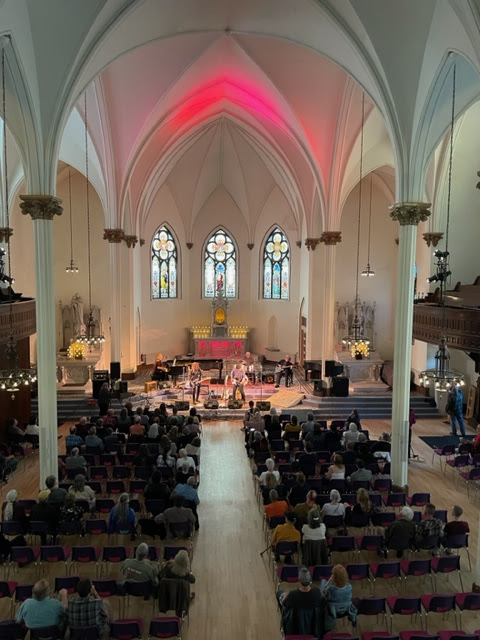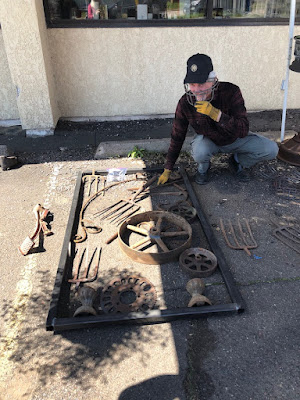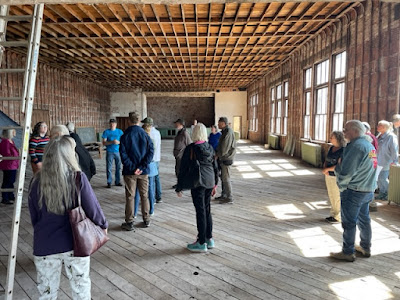I've been reading Ross King's The Bookseller of Florence, which details the influence of ancient writings and the manuscripts that helped spawn the Renaissance. One of the details that jumped out at me was the literacy rate in Florence at that time. 75 percent of the Florentines were literate, which was three times greater than peoples in other cities. Books and reading resulted in great advances in all fields of study.One of those influential writers from Roman times was the statesman, lawyer, scholar, philosopher, writer and academic skeptic Marcus Tullius Cicero. During the political crisis that led to the establishment of the Roman Empire he was striving to uphold high and noble ideals as regards the community we want to live in. His extensive writings include treatises on rhetoric, philosophy and politics.
He was also considered one of Rome's greatest orators and prose stylists and the innovator of what became known as Ciceronian rhetoric. Cicero was educated in Rome and in Greece and served as consul in 63 BC.
Cicero was a prolific writer and his works cover a wide range of topics, including politics, philosophy, rhetoric, and law. He is best known for his speeches, which are considered some of the greatest examples of oration in the history of Western civilization. He didn't speak just to hear himself talk, though. His aim was to make a difference, especially in the realm of making a better society.
He was also a gifted writer and his works are still read today for their insights. I am currently reading his book On Old Age. It is 2000 years old and still relevant.
What follows are some quotes from this an who influenced both Augustine of Hippo (Saint Augustine) and George Washington. The best way to enjoy good quotes is similar to the best way to enjoy art, poetry or a good meal: go slow and savor.
* * * *
"If you have a garden and a library, you have everything you need."
*
"There is nothing so absurd that it has not been said by some philosopher."
*
"No one is so old as to think that he cannot live one more year." (I've used this quote several times recently)
*
"Injustice often arises also through chicanery, that is, through an over-subtle and even fraudulent construction of the law. This it is that gave rise to the now familiar saw, 'More law, less justice.'"
*
"We are not born for ourselves alone; a part of us is claimed by our nation, another part by our friends."
*
"Let your desires be ruled by reason."
*
"For the habit of arguing in support of atheism, whether it be done from conviction or in pretense, is a wicked and impious practice."
*
"I should prefer ineloquent good sense to loquacious folly."
*
"Speaking of the 'Law of Nature,' what could be more "in accord" with it than for the old to die--an event that happens to young men only against all the opposition that nature can muster. Yes, indeed! It seems to me that the death of a young man is like the drowning of a blazing flame by a flood of water, whereas the death of the old is like the gradual, utterly gentle and spontaneous flickering out of a fire that has used up its fuel. Fruits, too, if they are green, must be forcefully pulled from the bough, but if they are ripe and mellow, they drop off. So it is with the life of man: from the young, it is taken by violence, from the old, by the fullness of time. This is a thought that gives me great comfort; as I come closer and closer to death, I seem, so to speak, to see the land and to be at last about to come into harbor after a long sea-journey."
*
































_-_Palazzo_Nuovo_-_Musei_Capitolini_-_Rome_2016.jpg)
































